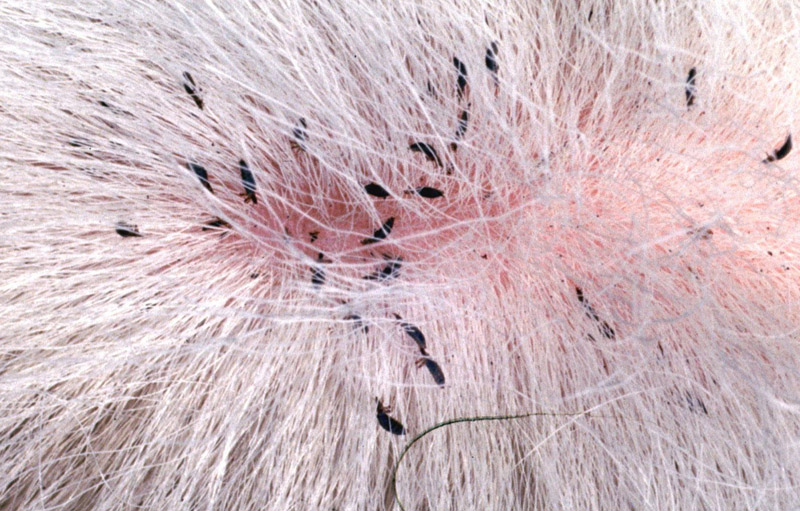
If you child attends daycare, preschool, or elementary school, chances are you’ve probably had to deal with a case of a head lice at some point. If you’re also a pet owner as you are trying desperately to de-lice the house, you may find yourself asking can cats get lice?
Can Cats Get Lice?
The good news is you can rest a little easier knowing that cats can’t catch lice from their human. The not so good news is that there are lice specific to cats and your kitty is susceptible to these. Cat lice are called Felicola subrostratus and not much is known about its biology. The life cycle for lice is anywhere from 7-21 days. For cat lice, the eggs hatch within hours to days of being laid on your cat’s fur. The hatched eggs are called nymphal lice and they mature into adults that can mate and lay more eggs after 2-3 weeks.
Can Cat Lice Be Seen?
Even if you aren’t a pet owner, you’ve probably seen fleas on a cat or dog in the past. Not many of us have seen lice on a cat. Cat lice are white so you’ll be more likely to see the lice eggs on a cat. Lice eggs are little white dots attached to the hairs on your cat. They’ll likely be down near your cat’s skin. If you see the nymphal or adult lice on your cat, they will likely have a triangular shaped head. If you put them under a microscope you’d see pincher like mandibles.
What Do I Do If My Cats Get Lice?
If you suspect your cat has lice, it’s best to confirm it. Look at your cat closely near the skin for the white eggs that stick to the hairs near your cat’s skin. If you see something, try to brush it off with your finger. If it brushes away easily, it could just be cat dander or something else. If it sticks to the actual hair, then it’s likely cat lice.
Although there are plenty of OTC lice treatments out there that can be effective in treating cat lice, many of these can be harmful to your cat. Untreated lice in cats can lead to infection from excessive scratching. The best thing to do if you’ve visually confirmed your cat has lice is to make an appointment with your vet for treatment.
Remember you can’t catch lice from your cat so don’t worry about that. Wash all you cat’s bedding and any cushion covers of the furniture it likes to sleep on in hot soapy water if it cannot be machine washed. Thoroughly vacuum all carpets and steam or otherwise clean items you cat has come into contact with such as cat brush, litter box, furniture, or carpet.
Can Lice Make Cats Sick?
As we mentioned above, untreated cat lice can lead to infection because of excessive scratching. Lice won’t just go away on their own. In fact, like fleas, if not treated, the lice will continue to reproduce and lead to an infestation. When cats are infested with lice or fleas, it can lead to serious health problems such as infection from scratching, hair loss, and even anemia from the lice feeding on their skin.